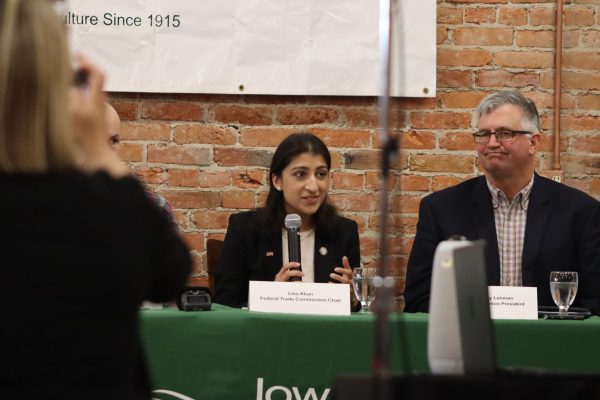Health care mandate leaves lingering questions
June 28, 2012
History was made on Thursday, June 28, when the U.S. Supreme Court upheld the Health Care Reform Act requiring Americans to either purchase health insurance or pay a fine, which was actually defined as a tax by the Supreme Court.
There are still a lot of unknown factors surrounding this decision. Some unknown factors surround the decision such as the amount of tax increase, and support for private insurance premiums. Questions have also risen as to what the decision means for more than 300,000 uninsured Iowans as well as for those already insured.
Dr. Michael Kitchell, neurologist and chair of the board at McFarland Clinic, said that, for uninsured Americans, this decision should be good news because it increases the ability for everyone to have health insurance. Even those who go to the Ames Free Medical Clinic because they cannot afford health insurance will be covered under programs such as Medicaid or federally subsidized private insurance plans.
With the mandate, Kitchell estimated the number of Medicaid patients to double. Kitchell stressed that the mandate does not call for government-run insurance policies, but rather government funded policies.
Kitchell said the Health Care Reform Act will also benefit hospitals and those who already have health insurance. Before the mandate, hospitals and insurance companies had to account for “cost shifting.”
In other words, taxpayers and insured Americans paid more to compensate for the uninsured Americans who did not or could not pay their medical bills. With the reduced number of uninsured Americans, hospitals will be able to cover more of their costs.
Even with its benefits, Kitchell said the mandate will face challenges. Insurance is expensive. Kitchell said employees pay about 25 percent of the insurance premium if they receive health insurance through their employers, who pay the remaining 75 percent. For a family of four, the premium cost is about $15,000 per year.
Given the expense of health insurance and the new mandate, Peter Orazem, professor of economics, said employers may shift the burden of health insurance onto employees. The cost of insurance will probably increase because there has not been an increase in supply.
Orazem went on to say if firms continue providing health benefits for their employees, they may hold back on other forms of compensation such as wage increases. Benefits aren’t taxed if offered through a firm; however, the taxes for private insurance could ultimately make insurance more expensive than receiving it through an employer.
“Adding additional costs on top of a recessed economy … would make it more difficult for firms to hire and increase the incentives for firms to abandon the provision of health insurance as part of their benefit package,” Orazem said.
If employers do choose to place the burden of health insurance on their employees, there are options to remain insured. Iowa Gov. Terry Branstad is in the process of setting up health exchange programs that would potentially decrease the cost of private insurance.
Now that the mandate is ruled as a constitutional law, it is up to each state to make sure the law is implemented. If states do not comply, they will not receive additional Medicaid funding; however, their existing funding would remain intact.
The mandate also ensures individuals with pre-existing conditions are not charged more than healthy individuals of the same age. Even with the new law, it is likely the state of Iowa — and the rest of the nation — would not see much change until the year 2014.
















